Crohn's Low Carb Diet
Good or Bad? How 10 Popular Diets Affect People With Crohn's

iStock
There are hundreds of different diets available to us. However, you should know that no single diet has been successfully proven to control Crohn's disease. Despite the hype, it's important to know that the different diets frequently featured in the media may or may not help you feel your best. Read on to learn more about some of the more popular diets and how they may impact your Crohn's and overall health.

Thinkstock
Ketogenic diet
The ketogenic (keto) diet is not new — in fact, it's been used for a century to treat epilepsy in kids. The goal of the diet is to focus on cutting carbohydrates and increasing fats to get the body to use fat as a form of energy. The diet usually includes eating meats, cheeses, fish, nuts, butter, oils, seeds and fibrous vegetables. For Crohn's, though, it's recommended that dairy and high-fiber foods be limited, especially during a flare, according to the Crohn's and Colitis Foundation (CCF).
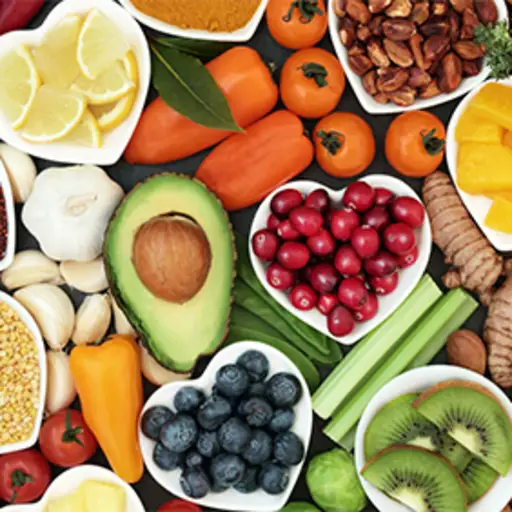
iStock
Plant-based diet
The term "plant-based diet" came into vogue when researchers at Yale University were asked what diet was best for health. They reported that a diet of minimally processed foods, predominately made of plants, was associated with decreased risk of disease. A plant-based diet includes not just fruits and vegetables but also whole grains, nuts, seeds, beans, legumes, and oils. A plant-based diet is high in nutrients, which could be beneficial if you have Crohn's.
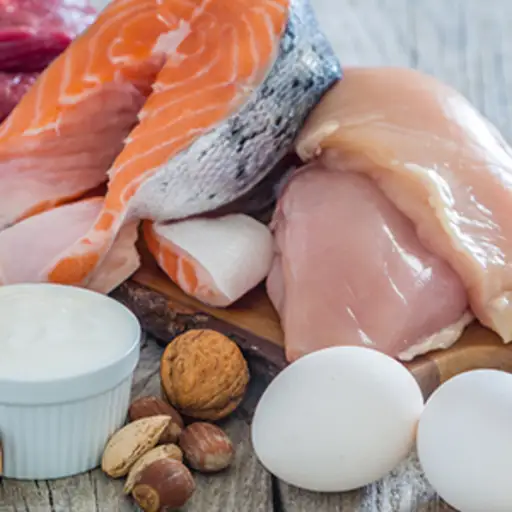
iStock
Paleolithic diet
The Paleolithic diet, or Paleo diet, consists of foods that are assumed to have eaten by humans around over 10,000 years ago, according to the Journal of Diabetes Science and Technology. The diet includes wild and uncultivated plant and animal sources such as lean meat, fish, vegetables, fruits, roots, eggs, and nuts. It excludes foods such as grains, legumes, dairy, salt, refined sugar, and processed oils. Eliminating as many processed foods as possible is always wise, with or without Crohn's.
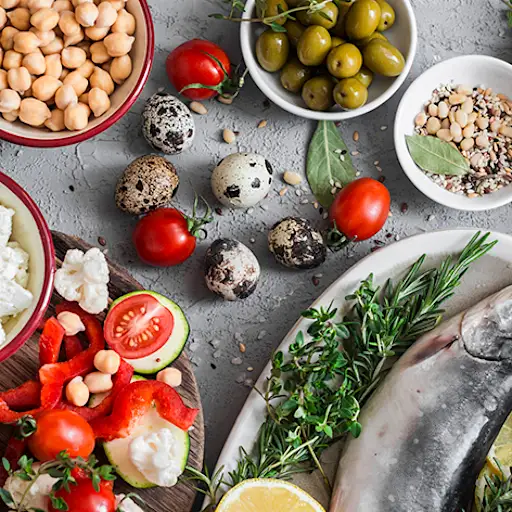
iStock
Mediterranean diet
The Mediterranean diet is based on a substantial intake of fruits, vegetables, and fish and a lower consumption of dairy, red meat, and sugars, according to Frontiers in Nutrition. The diet is based on traditional foods people used to eat in countries like Italy and Greece at a time when people in that region were extremely healthy. Reducing red meat intake could be helpful if you are living with Crohn's, especially if it helps you reduce the amount of greasy or fried foods in your diet.
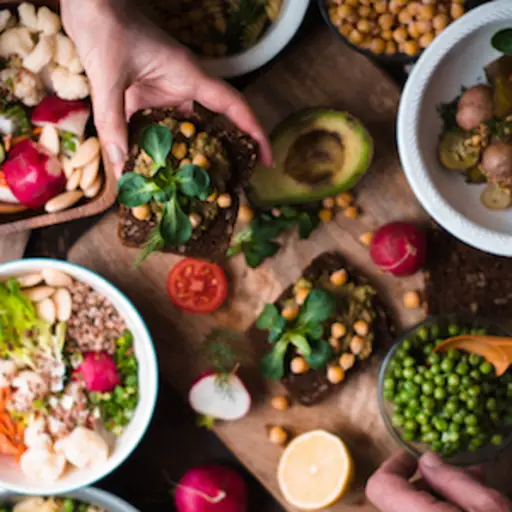
iStock
Vegetarian diet
According to the American Heart Association, there is no single vegetarian eating pattern. But most who consider themselves vegetarians exclude meat and focus on eating plants for food such as fruits, vegetables, dried beans, grains, and nuts. Some people who eat a vegetarian diet also consume fish and animal byproducts such as milk. Eating a plant-based diet is good for your health. However, vegetables can be very fibrous and should be reduced if you're having a Crohn's flare.
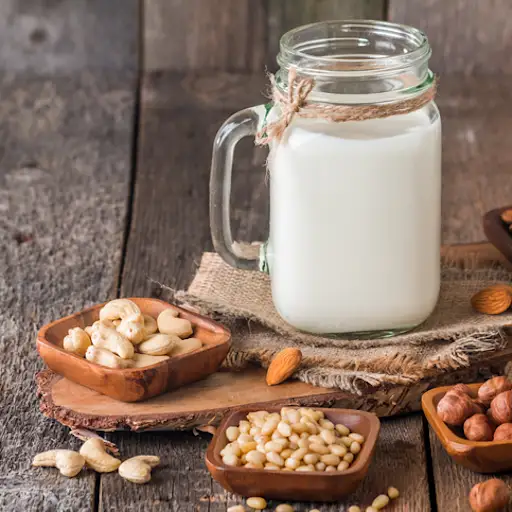
iStock
Vegan diet
A vegan diet excludes all meat and animal products. Therefore, vegans don't eat any meat, poultry, fish, eggs, dairy products, or any foods that contain these products. Fruits, vegetables, leafy greens, whole grains, nuts, seeds, and legumes are the staples of the vegan diet. Bear in mind that successfully maintaining nutrition with this diet may be time consuming.
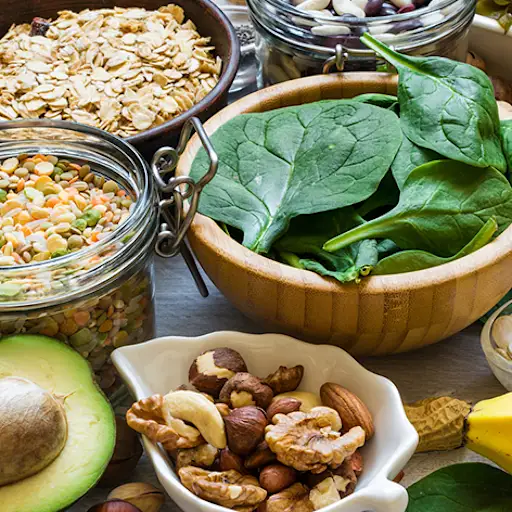
iStock
DASH diet
DASH stands for "Dietary Approaches to Stop Hypertension." According to the National Heart, Lung, and Blood Institute, the DASH diet is a flexible eating plan that helps create a heart-healthy eating style. It's rich in fruits, veggies, whole grains, low-fat dairy foods, fish, lean meat, and poultry. It limits foods high in saturated fat, sugary beverages, and sweets. This diet is well-rounded and leaves room for you to eat what makes you feel the best.

iStock
Gluten-free diet
Gluten is a name for the proteins found in wheat, rye, barley, and triticale, according to the Celiac Disease Foundation. Gluten acts as a glue that holds food together and is found in many foods. Those who live with celiac disease must avoid all gluten in their diet. Avoiding gluten has also gained popularity in some people without celiac. However, cutting all gluten can be difficult and eliminates some of the more easily digestible and highly nutritious foods such as whole grain breads.

iStock
Low-FODMAP diet
According to the CCF, FODMAPs are sugars that are found in certain carbohydrates that can be poorly absorbed by some people. Examples of foods that are high in FODMAPs include wheat, garlic, dairy products, and certain fruits and vegetables. A low-FODMAP diet is considered an intricate eating plan and usually works best with guidance from a dietitian. The low-FODMAP diet has been recommended for some with Crohn's disease.
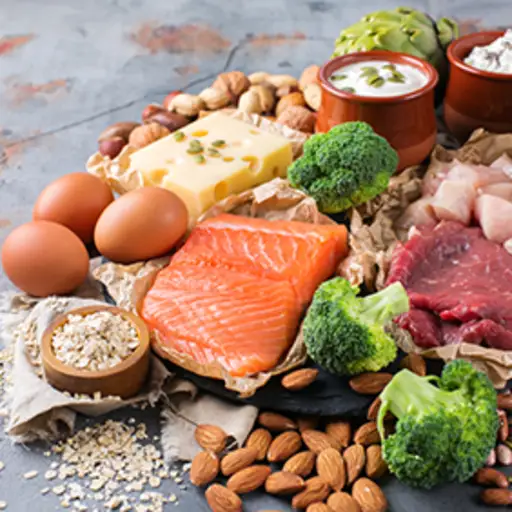
iStocks
Atkins diet
The Atkins diet is a low-carb diet started by cardiologist Robert Atkins, M.D. The Atkins plan is focused on restricting net carbs and eating more protein and healthy fats. Unlike the low-carb keto diet, the Atkins diet allows you to eat more carbs once the initial phase of the diet is over. Eating a diet that consists of mainly protein could increase your intake of greasy or fried foods and milk products. It may also reduce some easily digestible complex carbohydrates that are good for energy.

iStock
Always check with your doctor
The best diet is the one that meets your needs when living with Crohn's disease. While some diets may prove popular in the media, that doesn't mean they are healthy choices for everyone, especially those with complex digestive conditions like inflammatory bowel disease. Always work with your health care team to create an individualized diet that is right for you.

Meet Our Writer
Tracy Davenport, Ph.D.
Davenport is the founder of Tracyshealthyliving.com. Using the latest scientific research, she helps people live their healthiest lives via one-on-one coaching, corporate talks, and sharing the more than 1,000 health-related articles she's authored.
Source: https://www.healthcentral.com/slideshow/crohns-disease-popular-diets-to-know

Tidak ada komentar: